Interview: Mark Millar Talks Changes From 'Kingsman: The Secret Service' Comic To Movie
It feels like nearly every week a new Mark Millar property is being turned into a movie. From Wanted to Kick-Ass, through Civil War, Chrononauts, Jupiter's Legacy and more, there's always some new development to discuss with the comic writer.
The latest film based on his work, Kingsman: The Secret Service, was just released on Digital HD and Blu-ray/DVD. We spoke to Millar, not so much to look ahead, but to take a deep dive into that project's transition from page to screen. How is Millar's vision get reimagined for the big screen? Why are major changes made in the translation?
Then, of course, he told us about some general ideas he's had about a potential Kingsman 2 and the madness that sees his Marvel story Civil War being made into a movie. Below, read our Kingsman Mark Millar interview.
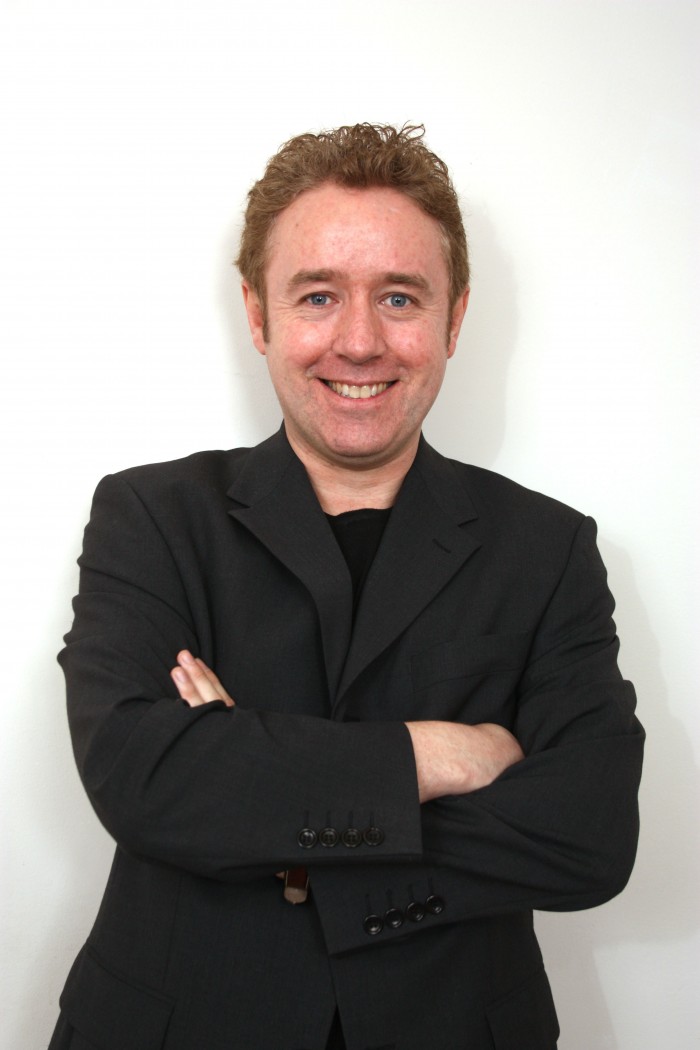 Director Matthew Vaughn is credited as a co-creator on the Secret Service comic with you and Dave Gibbons. How did he get that credit?
Director Matthew Vaughn is credited as a co-creator on the Secret Service comic with you and Dave Gibbons. How did he get that credit?
Well the comic was actually some years before the movie. Like the comic came out in 2011 and I think the screenplay was probably started in Christmas 2012. But the origins of it actually go back even farther. The origins go back to, I can actually tell you the date. It was in September 2008 when we were first talking about this. Matthew and I were on the Kick Ass set and usually something goes wrong and it takes a while to setup a new shot and everything. Matthew was like "Aw God, here we go again."
So there's a pub really close to the Elstree Studios where Kick Ass was shot and we said, "Let's just go in the pub." So we sneaked out for like an hour and an hour became three hours or something. We just sat and had a drink. You know what it's like whenever two geeks get together, all you do is either talk about how awesome something is or really bitch about something you love that's not as good as it should be.
Of course.
And like we were saying "What happened to spy films?" I mean, genuinely this is where it all came from. When I was a kid, I went to school with a pretend gun under my school blazer and I used to pretend that I was James Bond. Like nobody knew I had it. Now you'd be shot by armed police for doing this. But when I was a kid I wanted to be James Bond so badly. I wanted to be a superhero and I wanted to be James Bond. Those were my two things.
But superheroes, they don't kind of really seem that aspirational. No kid goes to see Christian Bale and thinks "I wanna be that guy." And it was same thing with James Bond. People are like "What happened to you? Why does it all look so sad?" Something that just seemed fun. So that was the kind of origin of it. We kicked around a few ideas. Wouldn't it be fun to do something that was kind of an ode to the old Bond movies or Our Man Flint or any of that kind of spy movie we loved growing up? Then I shot off to do the comic.
With the writing of the actual story, was that all you? Did you send Vaughn scripts?
What I did was slide them down to Matthew as I was writing the comic. And Matthew and I talked about stuff as well. Like, we have the wedding scene. The big fight where everybody's all killed off and things like that. We talked about that, so it was very organic. We were just chatting on the phone. Some days we'd use stuff, we'd not use stuff and everything. So it seems crazy not to give Matthew that co-credit, you know, 'cause he'd been there literally from that first chat.
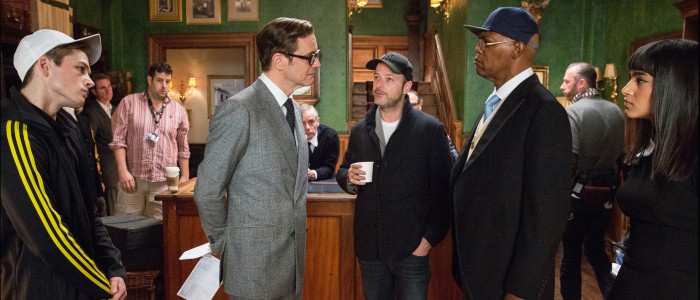 The book and the movie have the same DNA, but there are some big changes from one media to the next. I'd like to ask you about a couple. First, the movie plays up Eggsy's training, but in the comic, we only see one or two scenes. Why did Matthew decide to make that the bulk of the movie instead of going with the meteoric story of the comics?
The book and the movie have the same DNA, but there are some big changes from one media to the next. I'd like to ask you about a couple. First, the movie plays up Eggsy's training, but in the comic, we only see one or two scenes. Why did Matthew decide to make that the bulk of the movie instead of going with the meteoric story of the comics?
Well actually in the comic it's about the same length, it's just that the budget for the movie didn't allow for what some of the training was in the comic. Like there's a whole sequence in the comic where part of his training, which is real, this is real Special Forces training, you get stripped naked and dumped in another country and told that you have 24 hours to get back home with no passport. So all that stuff that was part of the training in the comic just for budget reasons couldn't be shot. But it's a relatively modestly budgeted film that couldn't afford to go on location and everything. So it ended up being that we usually shot in London.
Actually I've got a friend who trains military Black Ops guys. And he gave me loads of real life things that I used. Like the train sequence is a real thing that's done in Black Ops training. Being tied to train tracks and everything. That was in the comic originally but for space reasons, Dave only had a certain amount of time he was available to draw. So I had to scrap some stuff. But I passed that on to Matthew and Matthew incorporated that in the movie.
So roundabout, I don't know, maybe 25 percent of the original comic is the training. Whether it's being dumped somewhere, being sent into Covent Gardens to try and sell copies of a homeless magazine and things like that. Or beg money off people. All that stuff is real military stuff that I just lifted from training exercises done in real life. I mean, it made me kind of want to join the Army. And I probably would be really crap at it. I'd be rubbish at fighting or killing people and things. But I love the idea of that kind of training in general.
I love when he says "I wanna pick up this girl," and then they're in bed. It's so spy movie.
That's the real thing too. That's actually the real thing you send in male and female agents are sent in to try and seduce people and they're being monitored with earpieces and everything. That's like a real thing in real life.
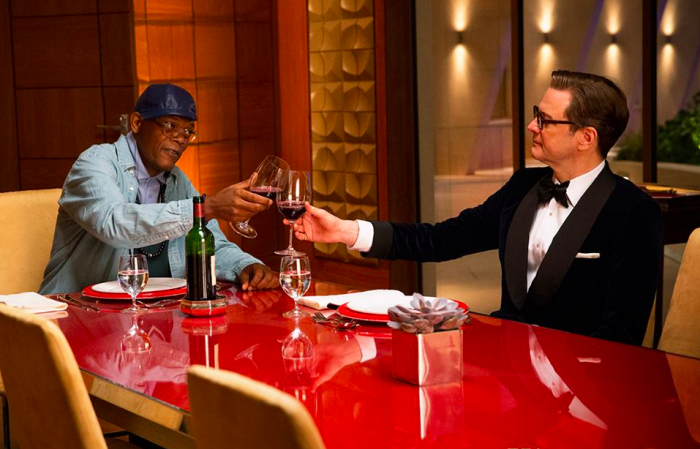 [SPOILERS FOR KINGSMAN FOLLOW]In the comic, the master plan has a different twist. The signal ends up with a lot of kissing where in the movie it gets really, really violent. Can you talk about that change? Was the kissing just not as cinematic as a bunch of people fighting?
[SPOILERS FOR KINGSMAN FOLLOW]In the comic, the master plan has a different twist. The signal ends up with a lot of kissing where in the movie it gets really, really violent. Can you talk about that change? Was the kissing just not as cinematic as a bunch of people fighting?
Yeah, I think it's as simple as that. Like actually the big third act ends with lots of kissing. I think you'd probably just feel a lot of letdown. Imagine Die Hard had ended up with Hans Gruber and Bruce Willis kissing or something. It wouldn't have had the same impact as blowing somebody away. And that's where, you know, comics to film adaptions differ. Your sense of excitement and your adrenaline in a movie is being developed over a two hour period. With a comic it's a lot more episodic and they just have a slightly different vibe. So in translation these things are always gonna be a little bit different.
I can almost think of nothing that, whether it's a novel becoming a film or something like that, that can do the action a movie can do. At the end, there's a real ramping up sense of the escalation. And the third act is something that movies just do so well. Comics can't really quite get that same tension. Comics are better at some things, but when it comes to action and really breaking down the action and making it as exciting as possible, movies are unrivaled for that 'cause they can make a fight scene last 15 minutes. In a comic that would be really boring 'cause it'd be like 30 pages or something.
That's a great point. Now one of the things that is similar is the villain's master plan is to destroy the world's population. How did you come up with that idea — using the cell phones to kill everybody by fighting each other?
Well the idea actually came to me a few years back. Actually comes from two things. I was planning a Spider-Man project that had it as a classic super villain kind of thing to do. Something that would activate that reptilian complex at the base of our brains, make people switch off their human personality and essentially just go completely tribal rage. So I was looking for something that could do that in real life. I went to the university that's right near my house. And it sounds insane, I said to one of my friends, "Do you know anyone really smart who could tell me how to mess around with radio waves or something like this?" So like I had to take this guy out to lunch. He must have thought "This guy's insane." And I was sitting with a notepad and just writing down everything, So that was years back. That was right about 2004 and I ended up not using it. I used it for one panel in a Spider-Man story instead of making it a whole story. But it was always sitting there in the back of my mind. And quite often something lies on your notepad for a while and then just pops up again somewhere else. And so that just seemed the perfect place to do it.
And I'm a big fan of a guy, I've been reading his books for 20 years, called Professor James Lovelock, that Mark Hamill's character was based on. Have you ever heard of the Gaia theory?
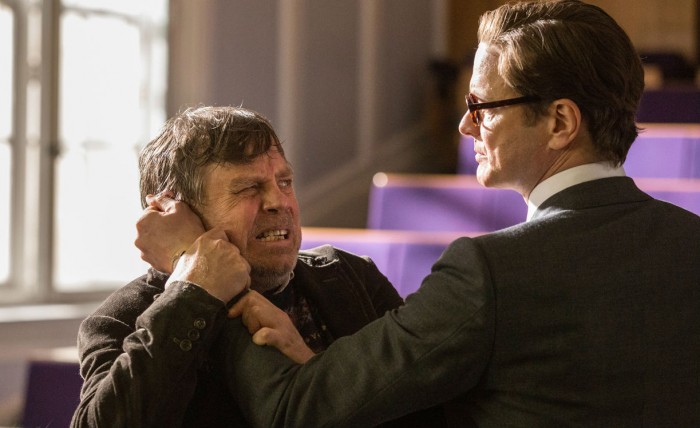 No.
No.
It's like this environmental idea. The idea is very interesting and this guy published the concept. Basically he says everything on Planet Earth is a living organism and the planet itself is no different. He said that we're two-thirds water, the planet's two-thirds water and everything, you know. Like we live and breathe in the same way the planet does. We just inhabit it. And his idea is that global warming is basically a virus that the planet has. He said that it's nothing to do with greenhouse emissions and all this kind of thing. His theory is very, very simple. He says that the human population should probably sit about a billion comfortably on the Earth. And as we creep up towards six, seven, eight billion, then the planet is becoming stressed by it. And the way a virus is a problem for the host body, the human beings are, this is Lovelock's theory, the virus on Planet Earth. So his feeling is the way that a regular host gets rid of a virus by raising its body temperature for a while to kill the virus and he said melting the polar icecaps is gonna wipe out probably 80, 90 percent of the human race. Mankind will start over again. And he thinks the planet is doing this naturally.
Wow, okay.
And I read this, you know, over 20 years ago and I always thought that theory was an interesting one and it tied in perfectly with the whole radio wave thing.
[END SPOILERS]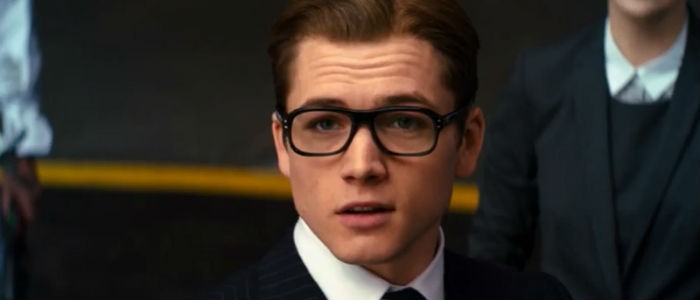 The comic sets up the sequel in the last panel. And we've heard that Fox is probably going to make a Kingsman 2. But without the mentor-mentee relationship, how do you see the story moving forward?
The comic sets up the sequel in the last panel. And we've heard that Fox is probably going to make a Kingsman 2. But without the mentor-mentee relationship, how do you see the story moving forward?
Well it could go a couple of ways. I mean there are calls to get Colin [Firth] back and everything. Colin is very interested in doing it. But we haven't decided yet what the plan is. But, to me I think there's two possibilities here. You can either go on and make it Lethal Weapon, where you have Colin and Taron [Edgerton] as, you know, two buddies who essentially go out and solve international situations. Or you can make it Ben Kenobi and Luke Skywalker with Colin as the mentor, the teacher who died and the student becomes the master. And then he goes on to greatness.
So there's two possible ways it can go and that's something we're discussing at the moment. We aren't very far on with anything. I've written nothing. The sequel, there's no second book or anything. And Matthew and I are just chatting on the phone. Matthew's written up some scenes. I think he and Jane [Goldman] are talking every day and everything. But there is no second book. Like I've literally blocked out my next two years and there's no time to do a second book. So it'll be an original screenplay of sorts. So Matthew and I are chatting about it, but and I'm still not quite sure where this is gonna end up. I mean, it's incredibly early stages. But what's quite nice actually is normally, Fox or Universal or whoever gives a greenlight. Something that was beautiful about Matthew is that they don't have that control. Matthew is independently wealthy and knows lots of rich guys, so he basically just funds the movies himself and he makes it like a whole movie and then he basically hands the DVD over to the studio. So it's funny.
There was a report a few weeks back saying Fox had greenlight and Matthew was on the phone to me saying "What are they talking about?" It's Matthew's film cause Matthew finances it and then just gives it to Fox, That's the way Kick Ass was made too, which was fantastic. And it just means you stand or fall on the merits of the movie. You can't complain, there's no studio interference or anything. Matthew just makes the film he wants to make and I kind of love that,
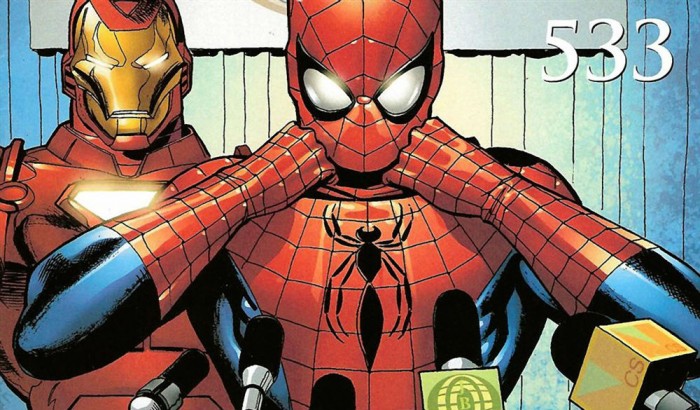 Captain America: Civil War is based on another book you wrote. That's another thing where they are using the bones of your story idea, and changing the details. What has that been like seeing that story become a movie, and how involved have you been?
Captain America: Civil War is based on another book you wrote. That's another thing where they are using the bones of your story idea, and changing the details. What has that been like seeing that story become a movie, and how involved have you been?
I've seen Avengers. I mean, I worked for Marvel for most of the last decade and it has been quite flattering. A lot of the stuff has been used and Avengers is very much an adaptation of our first Avengers book. Joss [Whedon] has said himself. Captain America was the stuff was from our Ultimates comic and everything. But our involvement is very little if anything. When I worked at Marvel and I did some consulting stuff on the first Iron Man movie because they were using elements of it. But really I just go and see them. Usually the day before the movie comes out, Marvel says, "Hey, do you want tickets for the premiere?" And that is about it. That's the extent that the involvement's been.
I mean, I went off and formed a rival company three or four years ago, in that I did my own franchises. So I guess they don't really see me as part of that thing. But when I was under contract there, you're very much part of the Marvel group. But I'm off working at other studios and, in publishing terms, I'm over at another company. So they maybe feel like it'd be a bit weird to have me sit at that table 'cause I would just be gossiping about all those things that I heard that night. [LAUGHS] I'd be down in the pub telling everybody the five year plan that's discussed.
—
Thanks to Mark Millar for his time and responses. Kingsman: The Secret Service is now available on Blu-ray and Digital HD.
